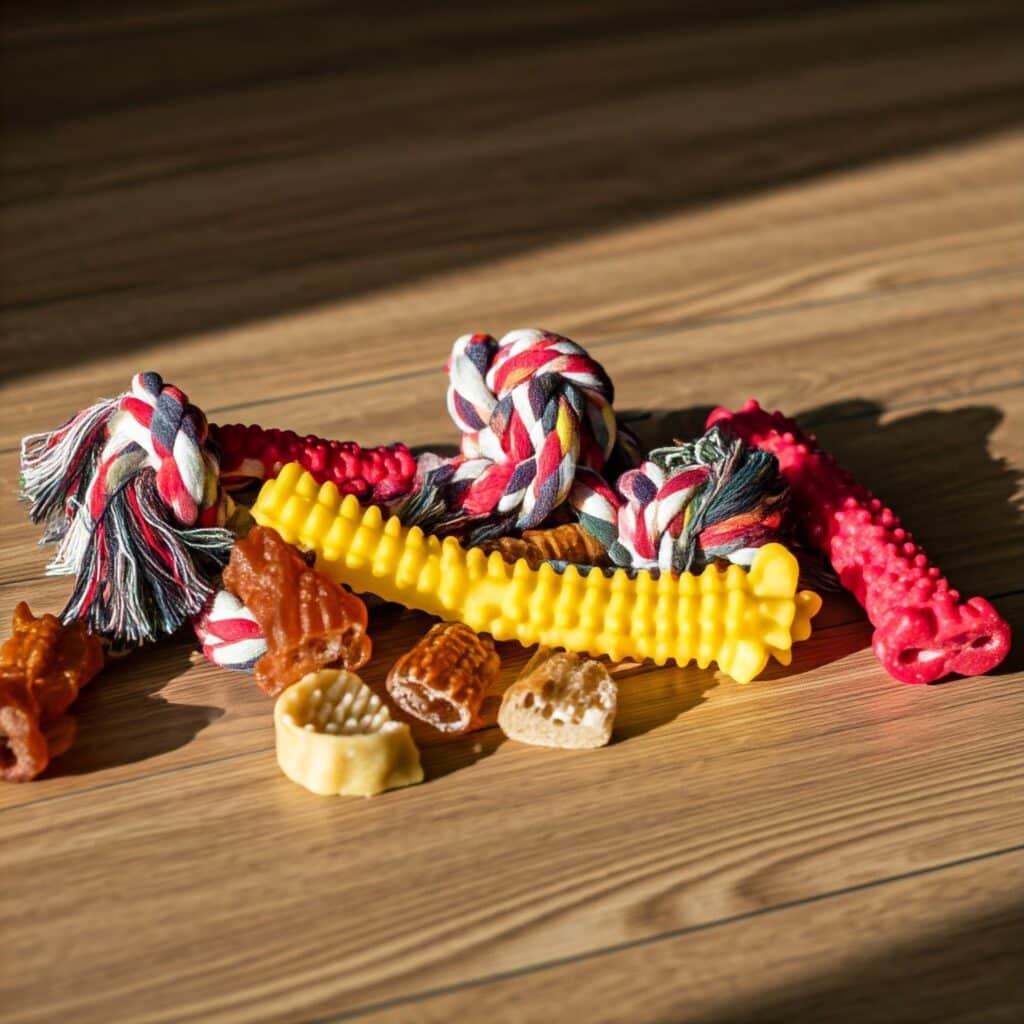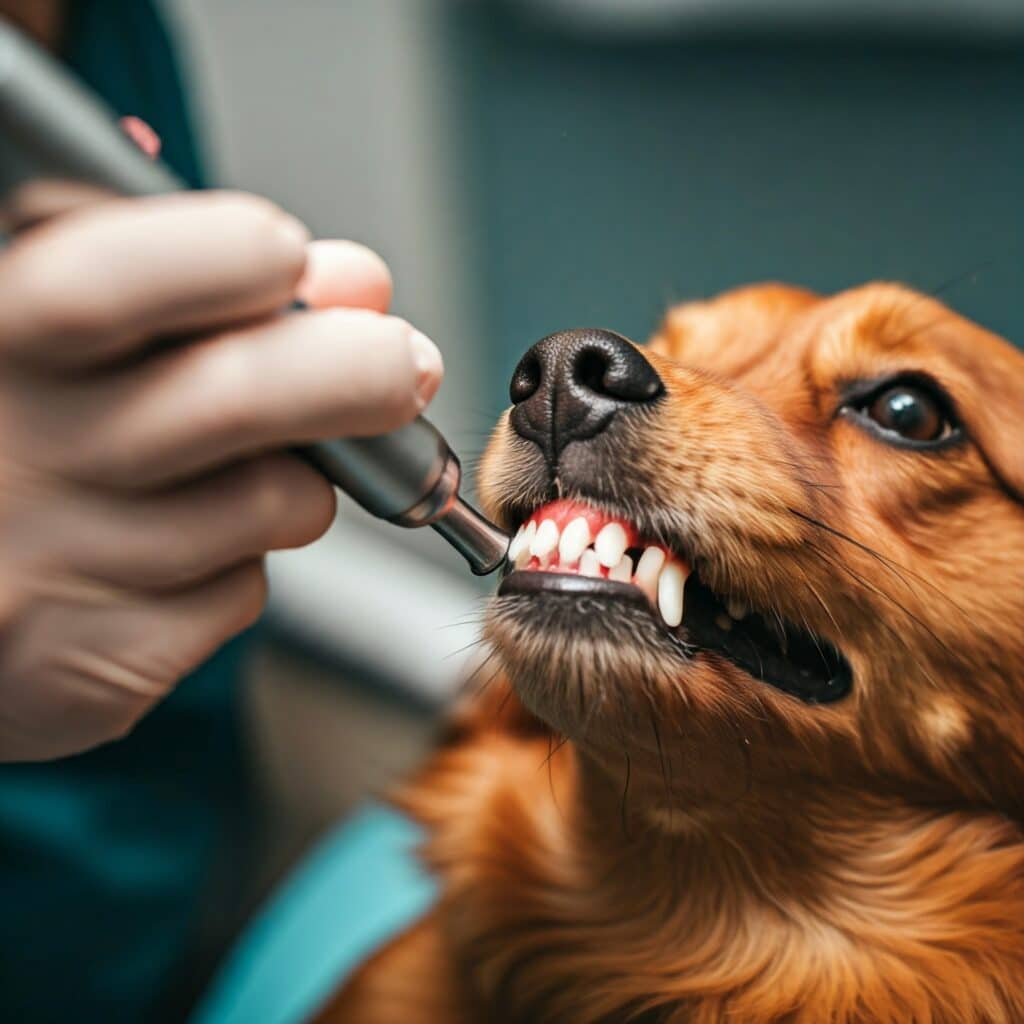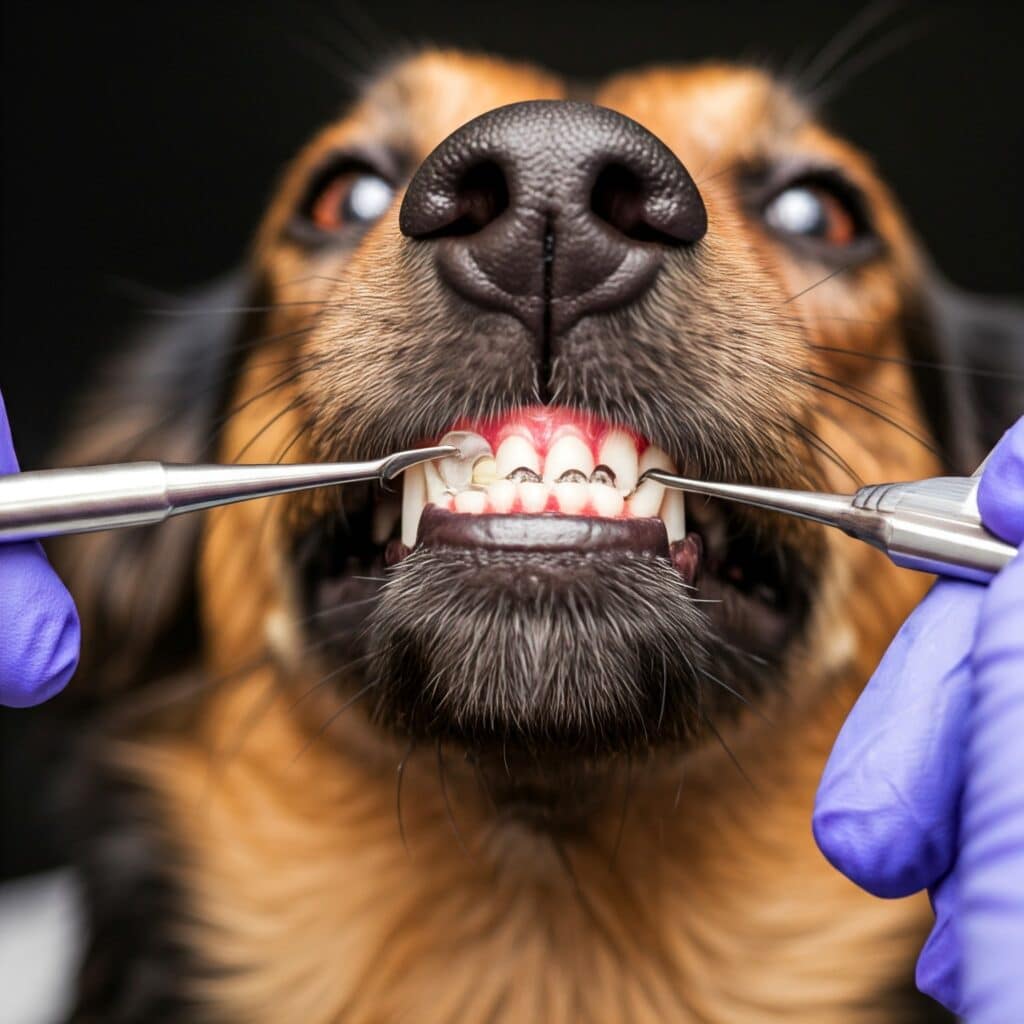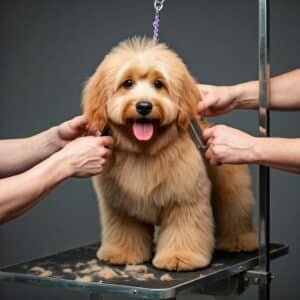Just like humans, dogs need regular dental care to ensure their teeth and gums remain healthy. Unfortunately, many pet owners overlook their dog’s oral hygiene, leading to common dental issues like plaque buildup, gum disease, and bad breath. In fact, dental disease is one of the most prevalent health problems in dogs, but the good news is that it’s largely preventable with the right dental care routine.
Maintaining good oral hygiene for your dog is essential not only for their teeth but also for their overall health. Dental problems in dogs can lead to painful conditions, difficulty eating, and even systemic infections that affect the heart, kidneys, and liver. In this article, we’ll share essential dog dental care tips to help you keep your dog’s mouth clean, fresh, and healthy.
1. Start Early with Dental Care
One of the best things you can do for your dog’s dental health is to start early. Just like training, dental care is easier to introduce when your dog is a puppy. If you start brushing your puppy’s teeth early, they’ll become accustomed to it and will be much more tolerant of regular brushing as they grow older.
However, if you’ve adopted an adult dog, it’s never too late to start dental care. With patience and consistency, adult dogs can also adjust to having their teeth brushed or using other dental care products.
2. Regular Brushing: The Gold Standard of Dental Care
Brushing your dog’s teeth is the most effective way to prevent plaque and tartar buildup, both of which can lead to gum disease. Aim to brush your dog’s teeth at least two to three times a week. Ideally, brushing daily will provide the best results, but brushing a few times a week is better than not brushing at all.
How to brush your dog’s teeth:
- Choose the right toothbrush and toothpaste: Use a toothbrush designed specifically for dogs, which typically has softer bristles and a longer handle for easy access. Do not use human toothpaste, as it contains fluoride and other ingredients that are harmful to dogs. Instead, use a dog-safe toothpaste that’s flavored to appeal to your dog, such as poultry or peanut butter.
- Start slow: Begin by letting your dog get used to the toothbrush and toothpaste. Gently rub the brush on their gums and teeth for a few seconds, offering praise and treats afterward to create a positive association.
- Brush in a circular motion: When your dog is comfortable, start brushing the teeth in a gentle, circular motion, focusing on the outer surfaces of the teeth where plaque tends to accumulate. Gradually work your way to all parts of the mouth, including the back teeth.
- Make it a routine: Consistency is key. Make brushing a regular part of your dog’s grooming routine. Over time, your dog will become accustomed to the process, and it will be easier to maintain their dental health.
3. Use Dental Chews and Toys

If brushing your dog’s teeth regularly seems daunting, or if your dog isn’t a fan of brushing, dental chews and toys are a great alternative. Dental chews help reduce plaque and tartar buildup by encouraging chewing, which naturally scrapes the teeth and massages the gums.
Benefits of dental chews:
- Reduces plaque and tartar: Many dental chews are designed with ridges or nubs that help remove buildup as your dog chews.
- Freshens breath: Dental chews often contain ingredients that help fight bad breath and promote fresher-smelling breath.
- Keeps dogs entertained: Chewing is a natural behavior for dogs, so providing dental chews or toys is a good way to satisfy this need while promoting dental health.
Popular dental chews and toys include:
- Greenies Dental Chews: These are one of the most popular dental chews on the market, designed to help clean teeth, reduce plaque, and freshen breath.
- Virbac C.E.T. Enzymatic Chews: These chews are made with enzymes that break down plaque, preventing it from hardening into tartar.
- KONG Dog Toys: KONG toys are known for their durability and can be stuffed with treats or peanut butter to keep your dog engaged while cleaning their teeth.
4. Provide a Balanced Diet
A balanced diet plays a crucial role in maintaining your dog’s overall health, including their dental health. High-quality dog food that’s specifically formulated to promote oral health can help reduce plaque buildup and support gum health. Some dry kibble is designed with a texture that helps scrub the teeth as your dog chews, while others contain added ingredients that help fight bacteria and support a healthy mouth.
Dental-specific dog food options:
- Hill’s Science Diet Oral Care: This dog food is designed to reduce plaque and tartar buildup, improve gum health, and maintain fresh breath.
- Royal Canin Veterinary Diet Dental: This prescription diet is formulated with larger kibble pieces that help scrub teeth and reduce the risk of dental disease.
- Pedigree Dentastix: These treats are specifically designed to reduce tartar and plaque and promote fresh breath when given daily.
If your dog has a preference for wet food, consider supplementing their diet with dental chews or a toothbrush to ensure they still receive the benefits of proper dental care.
5. Regular Veterinary Checkups and Professional Cleanings

In addition to at-home dental care, regular visits to the veterinarian are essential for maintaining your dog’s oral health. During routine checkups, your vet will examine your dog’s mouth, teeth, and gums for any signs of dental disease, such as gingivitis, tooth decay, or infections.
Professional dental cleanings: Just like humans, dogs need professional cleanings from time to time to ensure their teeth remain in optimal condition. A vet will perform a thorough cleaning under anesthesia, removing tartar buildup that cannot be addressed by brushing alone. This is especially important for dogs prone to periodontal disease, as untreated dental problems can lead to systemic health issues.
Your vet may recommend a professional cleaning once a year or more frequently if your dog has existing dental concerns.
6. Monitor for Signs of Dental Issues
As a pet owner, it’s important to keep an eye out for any signs that may indicate your dog is experiencing dental problems. Early detection of issues can help prevent more serious complications in the future. Common signs of dental problems in dogs include:
- Bad breath: While dogs don’t naturally have fresh-smelling breath, a strong, foul odor can be a sign of periodontal disease or infection.
- Red or swollen gums: Healthy gums should be pink, not red or inflamed. Swelling could indicate gingivitis or other oral issues.
- Excessive drooling: Excessive drooling can be a sign of mouth pain or infection.
- Difficulty eating: If your dog has trouble chewing or is avoiding certain foods, it may be due to tooth pain or discomfort in the mouth.
- Yellow or brown teeth: Plaque and tartar buildup can cause teeth to discolor. If left untreated, tartar can lead to tooth decay and gum disease.
- Pawing at the mouth: If your dog is constantly pawing at their mouth or face, it may indicate pain or discomfort in their mouth.
If you notice any of these signs, schedule a visit to your vet to address the issue early and avoid further complications.
7. Consider Dental Water Additives
If brushing your dog’s teeth isn’t an option or if you want to provide additional dental care, dental water additives are a convenient way to support oral health. These products are added to your dog’s water and help reduce bacteria, plaque, and bad breath. They are easy to use and can be a great supplement to brushing and dental chews.
Popular dental water additives include:
- Vet’s Best Enzymatic Dog Toothpaste Water Additive: This product contains enzymes that break down plaque and tartar while freshening your dog’s breath.
- Petsmile Professional Dog Water Additive: A veterinarian-recommended product that helps maintain oral hygiene and prevent plaque buildup.
- TropiClean Fresh Breath Oral Care: A popular option that promotes fresh breath, reduces plaque, and supports gum health.
Conclusion
Dental care is an often overlooked aspect of dog health, but it’s one of the most important ways to keep your pet happy and healthy. Regular brushing, providing dental chews and toys, offering a balanced diet, and scheduling professional cleanings are essential for preventing dental disease and maintaining your dog’s overall health. By implementing a consistent dental care routine, you can ensure your dog’s teeth stay clean, their gums remain healthy, and their breath stays fresh.
Remember, early prevention is key. By incorporating these dental care tips into your dog’s routine, you’re setting them up for a lifetime of good oral health and a happy, comfortable life.






